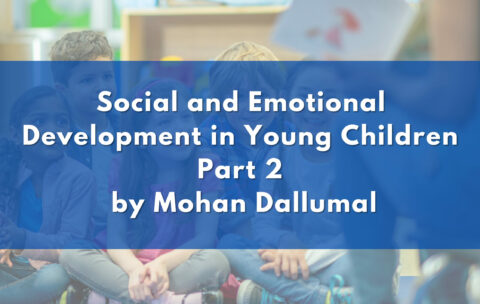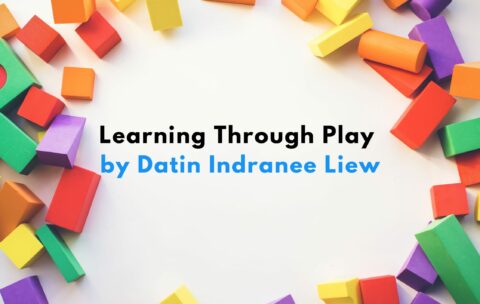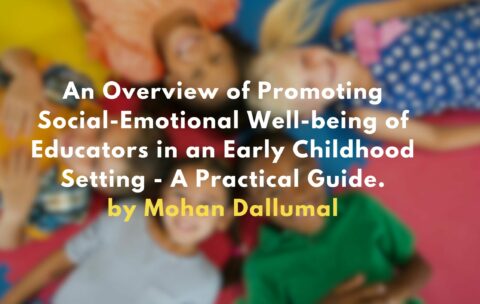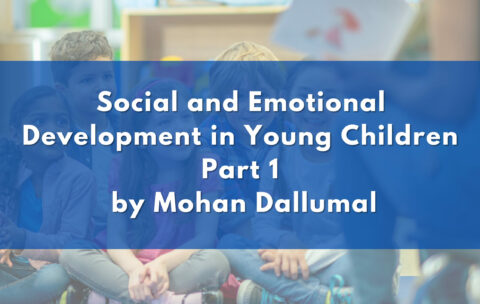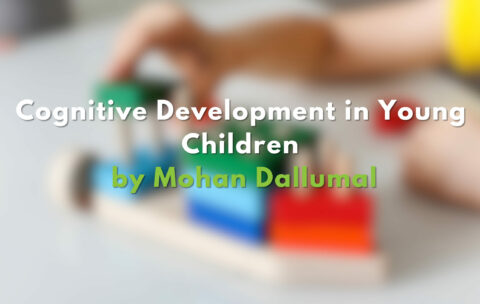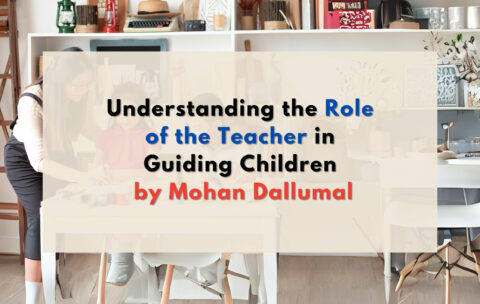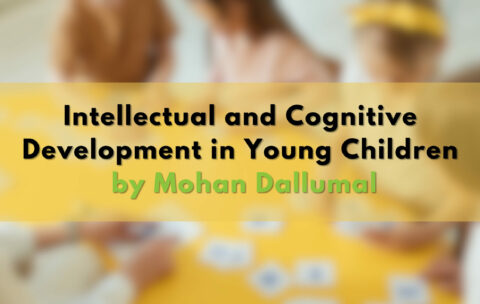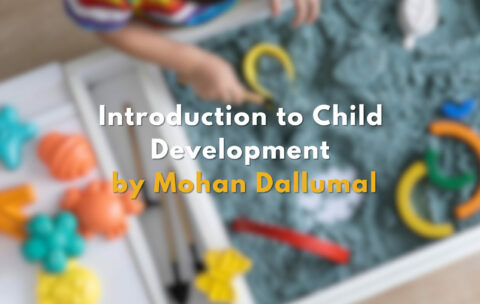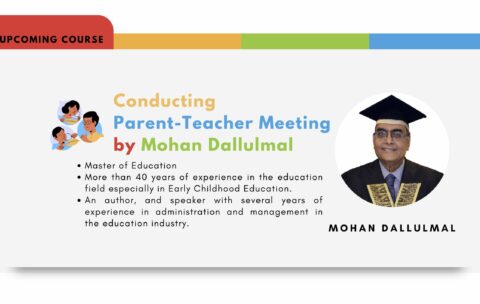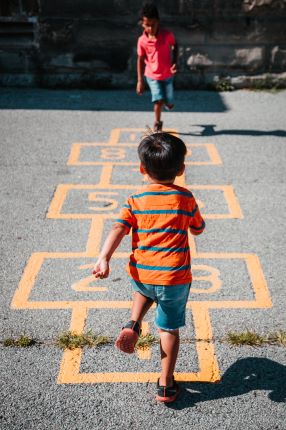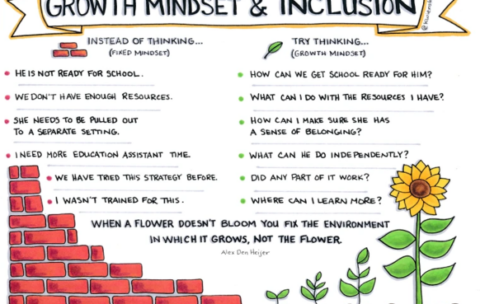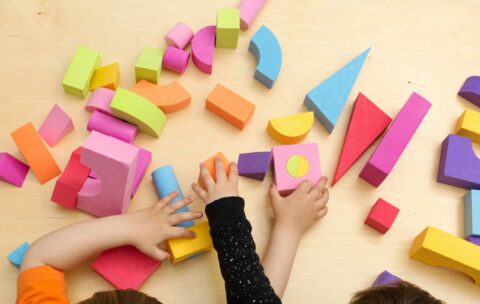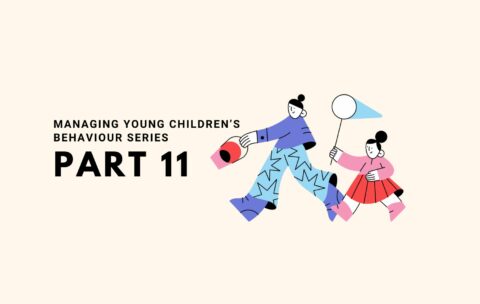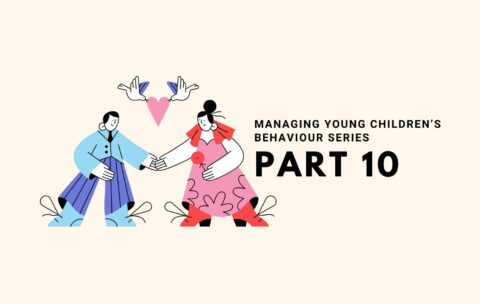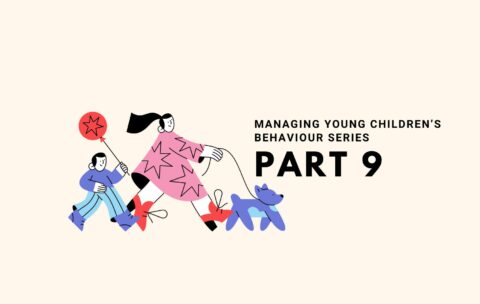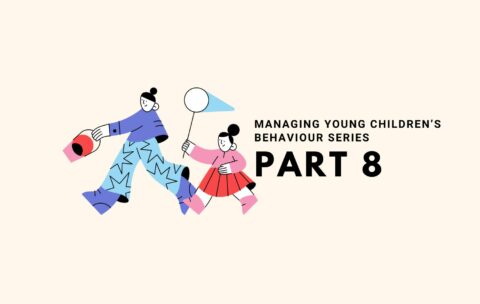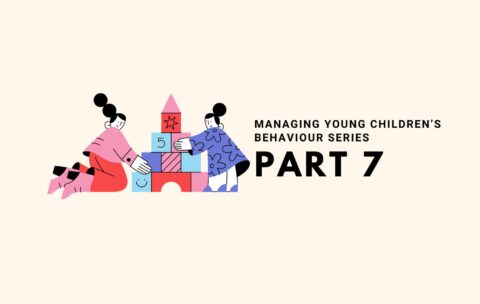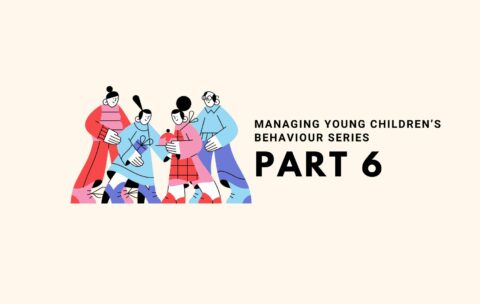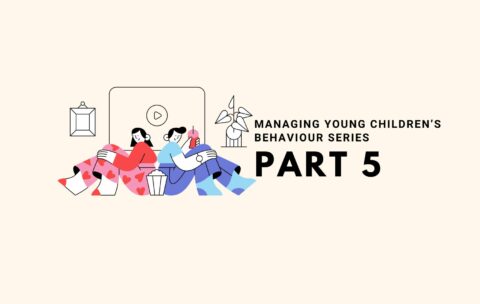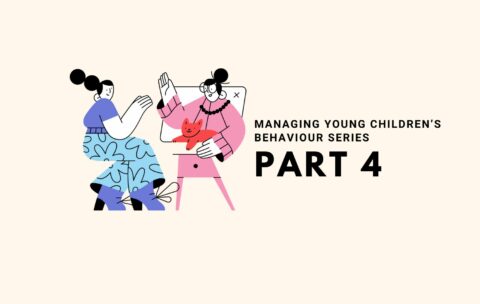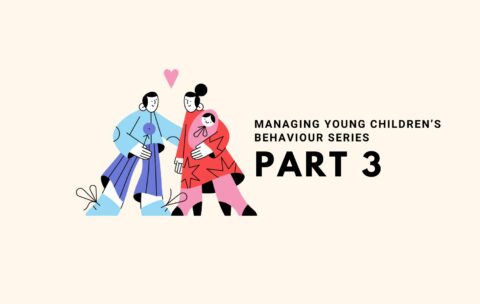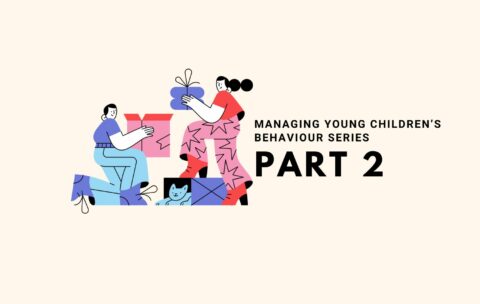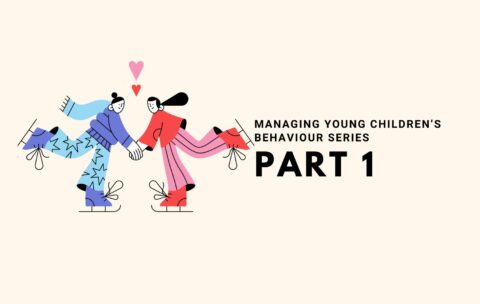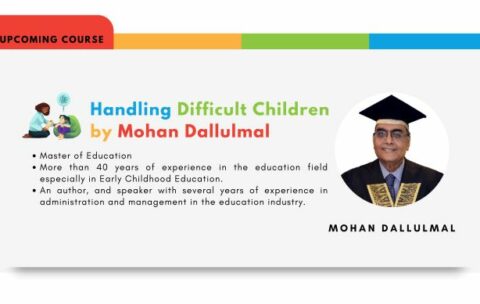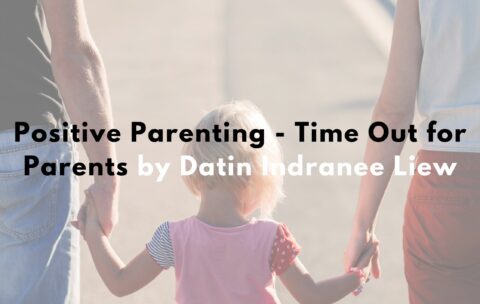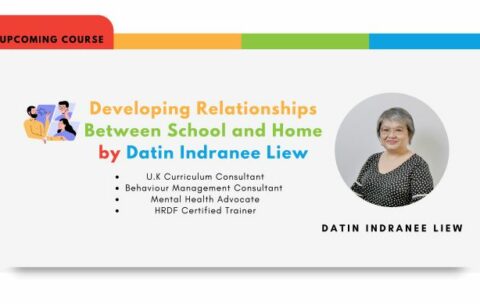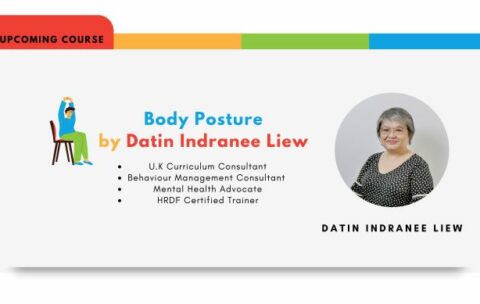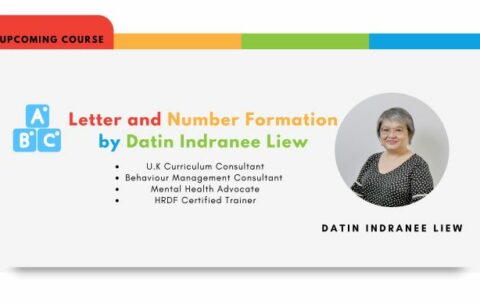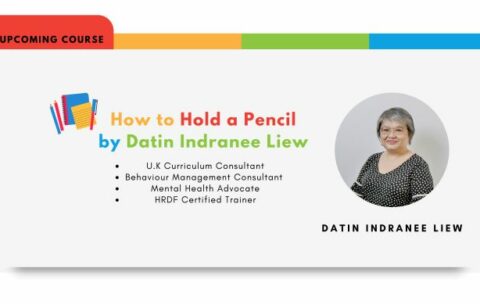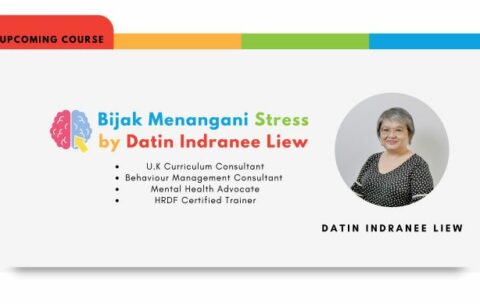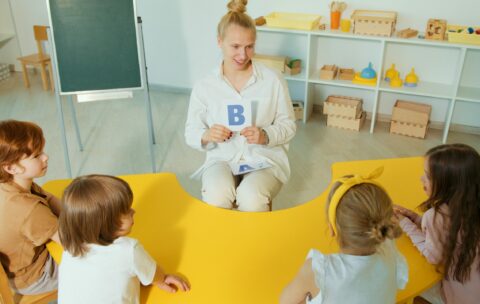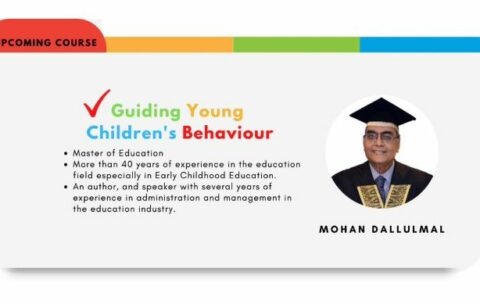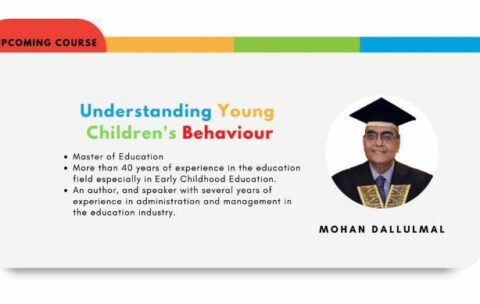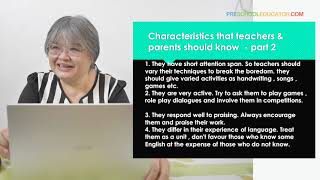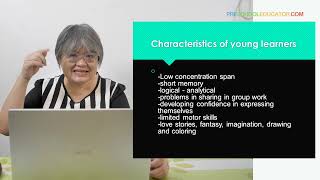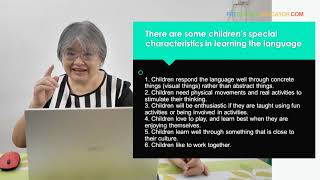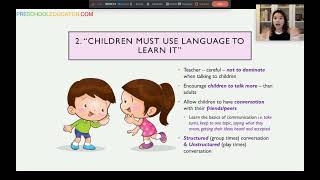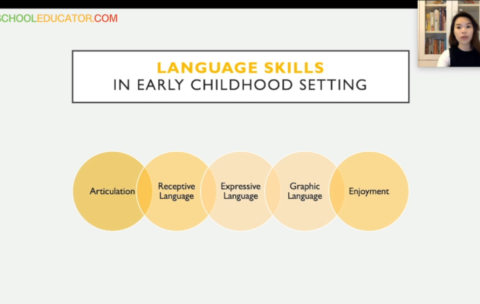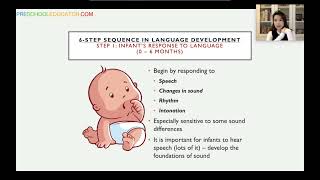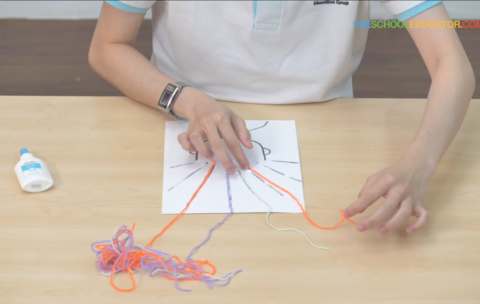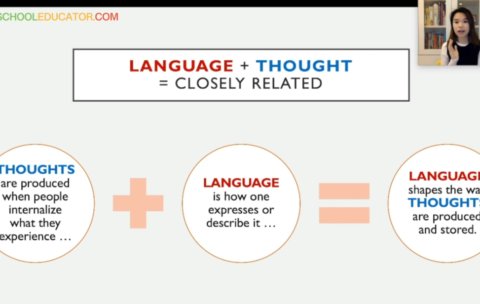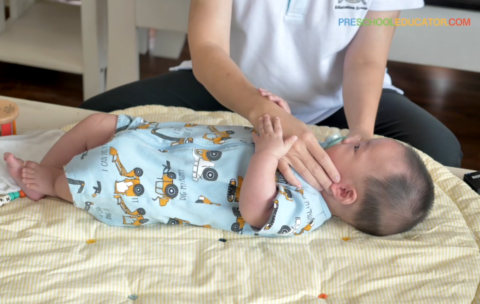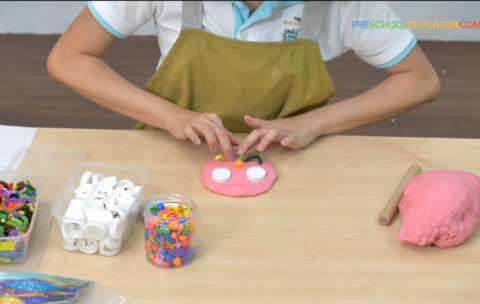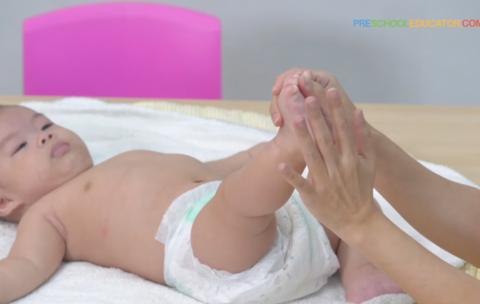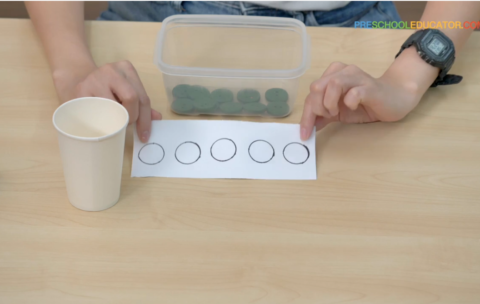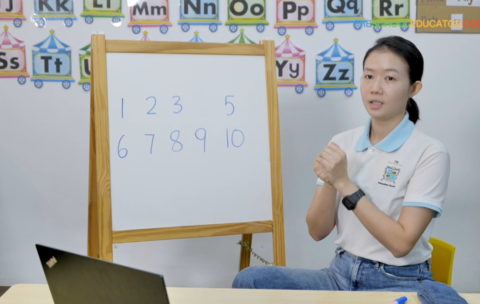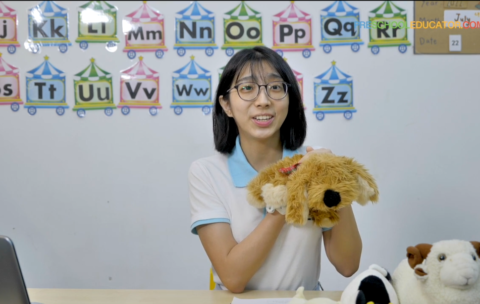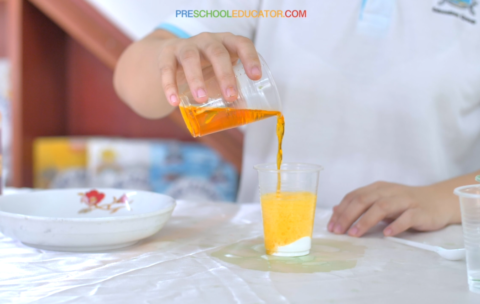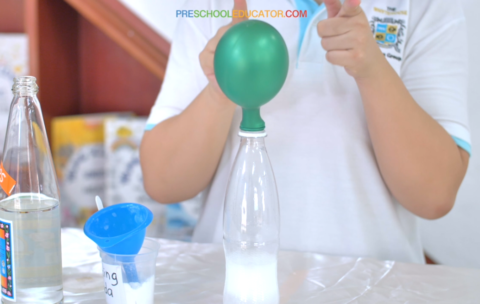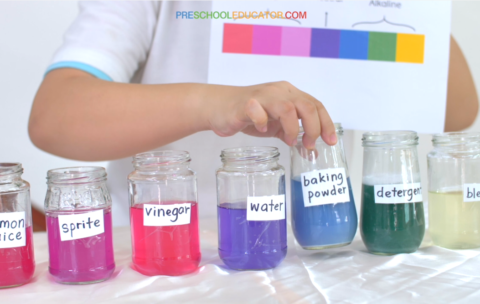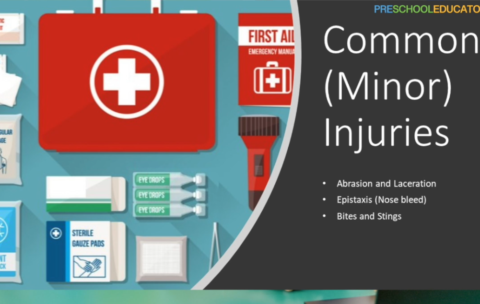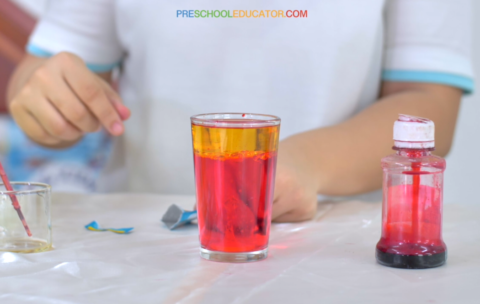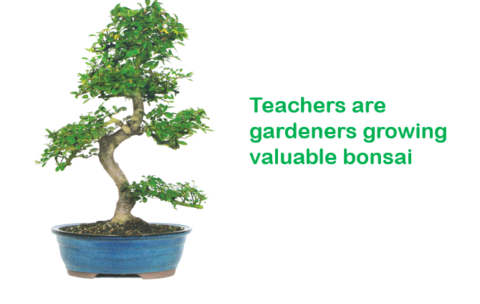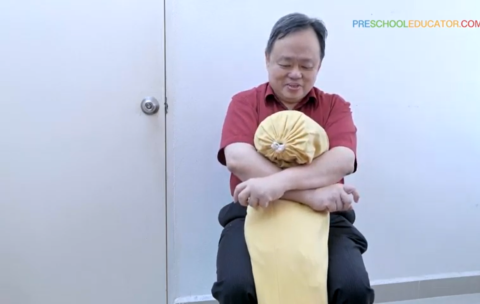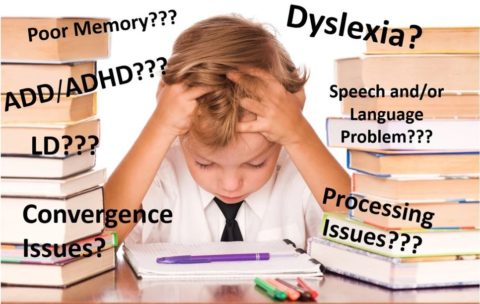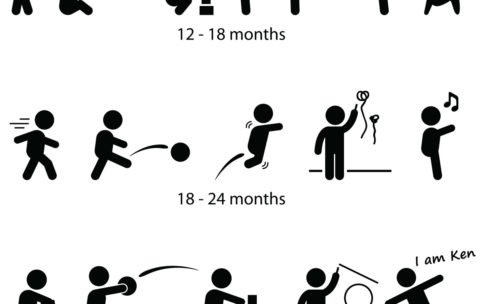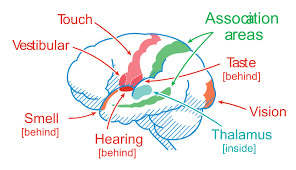Courses Taken
Child Growth and Development by Mohan Dallumal (Course 5)
Course 5: Social and Emotional Development in Young Children Part …
Child Growth and Development by Mohan Dallumal (Course 5)
What you'll learn
JPNPP Series: Learning Through Play by Datin Indranee Liew (Part 2)
Learning through play is crucial for children’s development, offering them …
JPNPP Series: Learning Through Play by Datin Indranee Liew (Part 2)
What you'll learn
JPNPP Series: Learning Through Play by Datin Indranee Liew (Part 1)
Learning through play is crucial for children’s development, offering them …
JPNPP Series: Learning Through Play by Datin Indranee Liew (Part 1)
What you'll learn
JPNPP Series: An Overview of Promoting Social-Emotional Well-Being of Educators in an Early Childhood Setting – A Practical Guide (Part 7) by Mohan Dallumal
Promoting the social-emotional well-being of educators in early childhood settings …
JPNPP Series: An Overview of Promoting Social-Emotional Well-Being of Educators in an Early Childhood Setting – A Practical Guide (Part 7) by Mohan Dallumal
What you'll learn
JPNPP Series: An Overview of Promoting Social-Emotional Well-Being of Educators in an Early Childhood Setting – A Practical Guide (Part 6) by Mohan Dallumal
Promoting the social-emotional well-being of educators in early childhood settings …
JPNPP Series: An Overview of Promoting Social-Emotional Well-Being of Educators in an Early Childhood Setting – A Practical Guide (Part 6) by Mohan Dallumal
What you'll learn
Child Growth and Development by Mohan Dallumal (Course 4)
Course 4: Social and Emotional Development in Young Children Part …
Child Growth and Development by Mohan Dallumal (Course 4)
What you'll learn
JPNPP Series: An Overview of Promoting Social-Emotional Well-Being of Educators in an Early Childhood Setting – A Practical Guide (Part 5) by Mohan Dallumal
Promoting the social-emotional well-being of educators in early childhood settings …
JPNPP Series: An Overview of Promoting Social-Emotional Well-Being of Educators in an Early Childhood Setting – A Practical Guide (Part 5) by Mohan Dallumal
What you'll learn
JPNPP Series: An Overview of Promoting Social-Emotional Well-Being of Educators in an Early Childhood Setting – A Practical Guide (Part 4) by Mohan Dallumal
Promoting the social-emotional well-being of educators in early childhood settings …
JPNPP Series: An Overview of Promoting Social-Emotional Well-Being of Educators in an Early Childhood Setting – A Practical Guide (Part 4) by Mohan Dallumal
What you'll learn
JPNPP Series: An Overview of Promoting Social-Emotional Well-Being of Educators in an Early Childhood Setting – A Practical Guide (Part 3) by Mohan Dallumal
Promoting the social-emotional well-being of educators in early childhood settings …
JPNPP Series: An Overview of Promoting Social-Emotional Well-Being of Educators in an Early Childhood Setting – A Practical Guide (Part 3) by Mohan Dallumal
What you'll learn
JPNPP Series: An Overview of Promoting Social-Emotional Well-Being of Educators in an Early Childhood Setting – A Practical Guide (Part 2) by Mohan Dallumal
Promoting the social-emotional well-being of educators in early childhood settings …
JPNPP Series: An Overview of Promoting Social-Emotional Well-Being of Educators in an Early Childhood Setting – A Practical Guide (Part 2) by Mohan Dallumal
What you'll learn
JPNPP Series: An Overview of Promoting Social-Emotional Well-Being of Educators in an Early Childhood Setting – A Practical Guide (Part 1) by Mohan Dallumal
Promoting the social-emotional well-being of educators in early childhood settings …
JPNPP Series: An Overview of Promoting Social-Emotional Well-Being of Educators in an Early Childhood Setting – A Practical Guide (Part 1) by Mohan Dallumal
What you'll learn
Child Growth and Development by Mohan Dallumal (Course 3)
Course 3: Cognitive Development in Young Children Embark on a …
Child Growth and Development by Mohan Dallumal (Course 3)
What you'll learn
JPNPP Series: Understanding The Role of the Teacher in Guiding Children by Mohan Dallumal (Part 10)
Understanding the role of the teacher in guiding children is …
JPNPP Series: Understanding The Role of the Teacher in Guiding Children by Mohan Dallumal (Part 10)
What you'll learn
JPNPP Series: Understanding The Role of the Teacher in Guiding Children by Mohan Dallumal (Part 9)
Understanding the role of the teacher in guiding children is …
JPNPP Series: Understanding The Role of the Teacher in Guiding Children by Mohan Dallumal (Part 9)
What you'll learn
JPNPP Series: Understanding The Role of the Teacher in Guiding Children by Mohan Dallumal (Part 8)
Understanding the role of the teacher in guiding children is …
JPNPP Series: Understanding The Role of the Teacher in Guiding Children by Mohan Dallumal (Part 8)
What you'll learn
JPNPP Series: Understanding The Role of the Teacher in Guiding Children by Mohan Dallumal (Part 7)
Understanding the role of the teacher in guiding children is …
JPNPP Series: Understanding The Role of the Teacher in Guiding Children by Mohan Dallumal (Part 7)
What you'll learn
Child Growth and Development by Mohan Dallumal (Course 2)
Course 2: Intellectual and Cognitive Development in Young Children Embark …
Child Growth and Development by Mohan Dallumal (Course 2)
What you'll learn
JPNPP Series: Understanding The Role of the Teacher in Guiding Children by Mohan Dallumal (Part 6)
Understanding the role of the teacher in guiding children is …
JPNPP Series: Understanding The Role of the Teacher in Guiding Children by Mohan Dallumal (Part 6)
What you'll learn
JPNPP Series: Understanding The Role of the Teacher in Guiding Children by Mohan Dallumal (Part 5)
Understanding the role of the teacher in guiding children is …
JPNPP Series: Understanding The Role of the Teacher in Guiding Children by Mohan Dallumal (Part 5)
What you'll learn
JPNPP Series: Understanding The Role of the Teacher in Guiding Children by Mohan Dallumal (Part 4)
Understanding the role of the teacher in guiding children is …
JPNPP Series: Understanding The Role of the Teacher in Guiding Children by Mohan Dallumal (Part 4)
What you'll learn
JPNPP Series: Understanding The Role of the Teacher in Guiding Children by Mohan Dallumal (Part 3)
Understanding the role of the teacher in guiding children is …
JPNPP Series: Understanding The Role of the Teacher in Guiding Children by Mohan Dallumal (Part 3)
What you'll learn
Child Growth and Development by Mohan Dallumal (Course 1)
Embark on a journey of discovery into the intricacies of …
Child Growth and Development by Mohan Dallumal (Course 1)
What you'll learn
JPNPP Series: Understanding The Role of the Teacher in Guiding Children by Mohan Dallumal (Part 2)
Understanding the role of the teacher in guiding children is …
JPNPP Series: Understanding The Role of the Teacher in Guiding Children by Mohan Dallumal (Part 2)
What you'll learn
JPNPP Series: Understanding The Role of the Teacher in Guiding Children by Mohan Dallumal (Part 1)
Understanding the role of the teacher in guiding children is …
JPNPP Series: Understanding The Role of the Teacher in Guiding Children by Mohan Dallumal (Part 1)
What you'll learn
JPNPP Series: Parent-Teacher Conference by Mohan Dallumal Part 6
The parent-teacher conferences are vital for parents to stay informed …
JPNPP Series: Parent-Teacher Conference by Mohan Dallumal Part 6
What you'll learn
JPNPP Series: Parent-Teacher Conference by Mohan Dallumal Part 5
The parent-teacher conferences are vital for parents to stay informed …
JPNPP Series: Parent-Teacher Conference by Mohan Dallumal Part 5
What you'll learn
JPNPP Series: Parent-Teacher Conference by Mohan Dallumal Part 4
The parent-teacher conferences are vital for parents to stay informed …
JPNPP Series: Parent-Teacher Conference by Mohan Dallumal Part 4
What you'll learn
JPNPP Series: Parent-Teacher Conference by Mohan Dallumal Part 3
The parent-teacher conferences are vital for parents to stay informed …
JPNPP Series: Parent-Teacher Conference by Mohan Dallumal Part 3
What you'll learn
JPNPP Series: Parent-Teacher Conference by Mohan Dallumal Part 2
The parent-teacher conferences are vital for parents to stay informed …
JPNPP Series: Parent-Teacher Conference by Mohan Dallumal Part 2
What you'll learn
JPNPP Series: Parent-Teacher Conference by Mohan Dallumal Part 1
The parent-teacher conferences are vital for parents to stay informed …
JPNPP Series: Parent-Teacher Conference by Mohan Dallumal Part 1
What you'll learn
JPNPP Series: All About Our Feelings by Datin Indranee Liew Part 2
Emotional intelligence is the ability to recognise, understand and manage …
JPNPP Series: All About Our Feelings by Datin Indranee Liew Part 2
What you'll learn
JPNPP Series: All About Our Feelings by Datin Indranee Liew Part 1
Emotional intelligence is the ability to recognise, understand and manage …
JPNPP Series: All About Our Feelings by Datin Indranee Liew Part 1
What you'll learn
JPNPP Series: Investigating Problem Behaviour: Case Vignettes by Datin Indranee Liew
Detecting the causes of behaviour in children is important for …
JPNPP Series: Investigating Problem Behaviour: Case Vignettes by Datin Indranee Liew
What you'll learn
JPNPP Series: Child Stress and Unmet Needs by Datin Indranee Liew
Addressing a child’s stress is important because stress can have …
JPNPP Series: Child Stress and Unmet Needs by Datin Indranee Liew
What you'll learn
JPNPP Series: How Growth Mindset Helps Children by Datin Indranee Liew
A growth mindset can benefit children as it helps them …
JPNPP Series: How Growth Mindset Helps Children by Datin Indranee Liew
What you'll learn
JPNPP Series: Classroom Rules by Datin Indranee Liew
Classroom rules are important because they provide a framework for …
JPNPP Series: Classroom Rules by Datin Indranee Liew
What you'll learn
JPNPP Series: Principles of Behaviour by Datin Indranee Liew Part 2
The principles of behaviour refer to the fundamental laws of …
JPNPP Series: Principles of Behaviour by Datin Indranee Liew Part 2
What you'll learn
JPNPP Series: Principles of Behaviour by Datin Indranee Liew Part 1
The principles of behaviour refer to the fundamental laws of …
JPNPP Series: Principles of Behaviour by Datin Indranee Liew Part 1
What you'll learn
JPNPP Series: Teacher as a Counsellor by Mohan Dallumal (Part 5)
A counsellor is trained to help children navigate difficult emotions, …
JPNPP Series: Teacher as a Counsellor by Mohan Dallumal (Part 5)
What you'll learn
JPNPP Series: Teacher as a Counsellor by Mohan Dallumal (Part 4)
A counsellor is trained to help children navigate difficult emotions, …
JPNPP Series: Teacher as a Counsellor by Mohan Dallumal (Part 4)
What you'll learn
JPNPP Series: Teacher as a Counsellor by Mohan Dallumal (Part 3)
A counsellor is trained to help children navigate difficult emotions, …
JPNPP Series: Teacher as a Counsellor by Mohan Dallumal (Part 3)
What you'll learn
JPNPP Series: Teacher as a Counsellor by Mohan Dallumal (Part 2)
A counsellor is trained to help children navigate difficult emotions, …
JPNPP Series: Teacher as a Counsellor by Mohan Dallumal (Part 2)
What you'll learn
JPNPP Series: Teacher as a Counsellor by Mohan Dallumal (Part 1)
A counsellor is trained to help children navigate difficult emotions, …
JPNPP Series: Teacher as a Counsellor by Mohan Dallumal (Part 1)
What you'll learn
JPNPP Series: Behaviour Modification by Mohan Dallumal (Part 11)
Behaviour modification is an approach to modifying negative behaviour into …
JPNPP Series: Behaviour Modification by Mohan Dallumal (Part 11)
What you'll learn
JPNPP Series: Behaviour Modification by Mohan Dallumal (Part 10)
Behaviour modification is an approach to modifying negative behaviour into …
JPNPP Series: Behaviour Modification by Mohan Dallumal (Part 10)
What you'll learn
JPNPP Series: Behaviour Modification by Mohan Dallumal (Part 9)
Behaviour modification is an approach to modifying negative behaviour into …
JPNPP Series: Behaviour Modification by Mohan Dallumal (Part 9)
What you'll learn
JPNPP Series: Behaviour Modification by Mohan Dallumal (Part 8)
Behaviour modification is an approach to modifying negative behaviour into …
JPNPP Series: Behaviour Modification by Mohan Dallumal (Part 8)
What you'll learn
JPNPP Series: Behaviour Modification by Mohan Dallumal (Part 7)
Behaviour modification is an approach to modifying negative behaviour into …
JPNPP Series: Behaviour Modification by Mohan Dallumal (Part 7)
What you'll learn
JPNPP Series: Behaviour Modification by Mohan Dallumal (Part 6)
Behaviour modification is an approach to modifying negative behaviour into …
JPNPP Series: Behaviour Modification by Mohan Dallumal (Part 6)
What you'll learn
JPNPP Series: Behaviour Modification by Mohan Dallumal (Part 5)
Behaviour modification is an approach to modifying negative behaviour into …
JPNPP Series: Behaviour Modification by Mohan Dallumal (Part 5)
What you'll learn
JPNPP Series: Behaviour Modification by Mohan Dallumal (Part 4)
Behaviour modification is an approach to modifying negative behaviour into …
JPNPP Series: Behaviour Modification by Mohan Dallumal (Part 4)
What you'll learn
JPNPP Series: Behaviour Modification by Mohan Dallumal (Part 3)
Behaviour modification is an approach to modifying negative behaviour into …
JPNPP Series: Behaviour Modification by Mohan Dallumal (Part 3)
What you'll learn
JPNPP Series: Behaviour Modification by Mohan Dallumal (Part 2)
Behaviour modification is an approach to modifying negative behaviour into …
JPNPP Series: Behaviour Modification by Mohan Dallumal (Part 2)
What you'll learn
JPNPP Series: Behaviour Modification by Mohan Dallumal (Part 1)
Behaviour modification is an approach to modifying negative behaviour into …
JPNPP Series: Behaviour Modification by Mohan Dallumal (Part 1)
What you'll learn
JPNPP Series: Handling Difficult Children by Mohan Dallumal Part 9
Children may show challenging behaviour from time to time in …
JPNPP Series: Handling Difficult Children by Mohan Dallumal Part 9
What you'll learn
Positive Parenting – Time Out for Parents (The Early Years) by Datin Indranee Liew (Session 6 Part 2)
Time Out for Parents (The Early Years) is divided into …
Positive Parenting – Time Out for Parents (The Early Years) by Datin Indranee Liew (Session 6 Part 2)
What you'll learn
Positive Parenting – Time Out for Parents (The Early Years) by Datin Indranee Liew (Session 6 Part 1)
Time Out for Parents (The Early Years) is divided into …
Positive Parenting – Time Out for Parents (The Early Years) by Datin Indranee Liew (Session 6 Part 1)
What you'll learn
Positive Parenting – Time Out for Parents (The Early Years) by Datin Indranee Liew (Session 6 Part 3)
Time Out for Parents (The Early Years) is divided into …
Positive Parenting – Time Out for Parents (The Early Years) by Datin Indranee Liew (Session 6 Part 3)
What you'll learn
Positive Parenting – Time Out for Parents (The Early Years) by Datin Indranee Liew (Session 5 Part 3)
Time Out for Parents (The Early Years) is divided into …
Positive Parenting – Time Out for Parents (The Early Years) by Datin Indranee Liew (Session 5 Part 3)
What you'll learn
Positive Parenting – Time Out for Parents (The Early Years) by Datin Indranee Liew (Session 5 Part 2)
Time Out for Parents (The Early Years) is divided into …
Positive Parenting – Time Out for Parents (The Early Years) by Datin Indranee Liew (Session 5 Part 2)
What you'll learn
Positive Parenting – Time Out for Parents (The Early Years) by Datin Indranee Liew (Session 5 Part 1)
Time Out for Parents (The Early Years) is divided into …
Positive Parenting – Time Out for Parents (The Early Years) by Datin Indranee Liew (Session 5 Part 1)
What you'll learn
Positive Parenting – Time Out for Parents (The Early Years) by Datin Indranee Liew (Session 4 Part 3)
Time Out for Parents (The Early Years) is divided into …
Positive Parenting – Time Out for Parents (The Early Years) by Datin Indranee Liew (Session 4 Part 3)
What you'll learn
Positive Parenting – Time Out for Parents (The Early Years) by Datin Indranee Liew (Session 4 Part 2)
Time Out for Parents (The Early Years) is divided into …
Positive Parenting – Time Out for Parents (The Early Years) by Datin Indranee Liew (Session 4 Part 2)
What you'll learn
Positive Parenting – Time Out for Parents (The Early Years) by Datin Indranee Liew (Session 4 Part 1)
Time Out for Parents (The Early Years) is divided into …
Positive Parenting – Time Out for Parents (The Early Years) by Datin Indranee Liew (Session 4 Part 1)
What you'll learn
Positive Parenting – Time Out for Parents (The Early Years) by Datin Indranee Liew (Session 3)
Time Out for Parents (The Early Years) is divided into …
Positive Parenting – Time Out for Parents (The Early Years) by Datin Indranee Liew (Session 3)
What you'll learn
Positive Parenting – Time Out for Parents (The Early Years) by Datin Indranee Liew (Session 2 Part 4)
Time Out for Parents (The Early Years) is divided into …
Positive Parenting – Time Out for Parents (The Early Years) by Datin Indranee Liew (Session 2 Part 4)
What you'll learn
Positive Parenting – Time Out for Parents (The Early Years) by Datin Indranee Liew (Session 2 Part 3)
Time Out for Parents (The Early Years) is divided into …
Positive Parenting – Time Out for Parents (The Early Years) by Datin Indranee Liew (Session 2 Part 3)
What you'll learn
Positive Parenting – Time Out for Parents (The Early Years) by Datin Indranee Liew (Session 2 Part 2)
Time Out for Parents (The Early Years) is divided into …
Positive Parenting – Time Out for Parents (The Early Years) by Datin Indranee Liew (Session 2 Part 2)
What you'll learn
Positive Parenting – Time Out for Parents (The Early Years) by Datin Indranee Liew (Session 2 Part 1)
Time Out for Parents (The Early Years) is divided into …
Positive Parenting – Time Out for Parents (The Early Years) by Datin Indranee Liew (Session 2 Part 1)
What you'll learn
Positive Parenting – Time Out for Parents (The Early Years) by Datin Indranee Liew (Session 1)
Time Out for Parents (The Early Years) is divided into …
Positive Parenting – Time Out for Parents (The Early Years) by Datin Indranee Liew (Session 1)
What you'll learn
JPNPP Series: Handling Difficult Children by Mohan Dallumal Part 8
Children may show challenging behaviour from time to time in …
JPNPP Series: Handling Difficult Children by Mohan Dallumal Part 8
What you'll learn
JPNPP Series: Handling Difficult Children by Mohan Dallumal Part 6
Children may show challenging behaviour from time to time in …
JPNPP Series: Handling Difficult Children by Mohan Dallumal Part 6
What you'll learn
JPNPP Series: Handling Difficult Children by Mohan Dallumal Part 5
Children may show challenging behaviour from time to time in …
JPNPP Series: Handling Difficult Children by Mohan Dallumal Part 5
What you'll learn
JPNPP Series: Handling Difficult Children by Mohan Dallumal Part 4
Children may show challenging behaviour from time to time in …
JPNPP Series: Handling Difficult Children by Mohan Dallumal Part 4
What you'll learn
JPNPP Series: Handling Difficult Children by Mohan Dallumal Part 3
Children may show challenging behaviour from time to time in …
JPNPP Series: Handling Difficult Children by Mohan Dallumal Part 3
What you'll learn
JPNPP Series: Handling Difficult Children by Mohan Dallumal Part 2
Children may show challenging behaviour from time to time in …
JPNPP Series: Handling Difficult Children by Mohan Dallumal Part 2
What you'll learn
JPNPP Series: Handling Difficult Children by Mohan Dallumal Part 1
Children may show challenging behaviour from time to time in …
JPNPP Series: Handling Difficult Children by Mohan Dallumal Part 1
What you'll learn
JPNPP Series: Teacher-Parent Relationship by Datin Indranee
A positive relationship between school and home helps to lay …
JPNPP Series: Teacher-Parent Relationship by Datin Indranee
What you'll learn
JPNPP Series: Correct Posture by Datin Indranee
Developing good posture helps children to build back strength and …
JPNPP Series: Correct Posture by Datin Indranee
What you'll learn
JPNPP Series: Letter and Number Formation by Datin Indranee
Learning letter and number formations are significant as it helps …
JPNPP Series: Letter and Number Formation by Datin Indranee
What you'll learn
JPNPP Series: How to Hold a Pencil by Datin Indranee
A correct pencil grip will allow children to control their …
JPNPP Series: How to Hold a Pencil by Datin Indranee
What you'll learn
JPNPP Series: Bijak Menangani Stress oleh Datin Indranee
Stress atau tekanan merupakan tindak balas fizikal, emosi dan mental …
JPNPP Series: Bijak Menangani Stress oleh Datin Indranee
What you'll learn
JPNPP Series: Managing Young Children’s Behaviour by Mohan Dallumal (Part 11)
Managing young children’s behaviour will help teach them to enforce …
JPNPP Series: Managing Young Children’s Behaviour by Mohan Dallumal (Part 11)
What you'll learn
JPNPP Series: Managing Young Children’s Behaviour by Mohan Dallumal (Part 10)
Managing young children’s behaviour will help teach them to enforce …
JPNPP Series: Managing Young Children’s Behaviour by Mohan Dallumal (Part 10)
What you'll learn
JPNPP Series: Managing Young Children’s Behaviour by Mohan Dallumal (Part 9)
Managing young children’s behaviour will help teach them to enforce …
JPNPP Series: Managing Young Children’s Behaviour by Mohan Dallumal (Part 9)
What you'll learn
JPNPP Series: Managing Young Children’s Behaviour by Mohan Dallumal (Part 8)
Managing young children’s behaviour will help teach them to enforce …
JPNPP Series: Managing Young Children’s Behaviour by Mohan Dallumal (Part 8)
What you'll learn
JPNPP Series: Managing Young Children’s Behaviour by Mohan Dallumal (Part 7)
Managing young children’s behaviour will help teach them to enforce …
JPNPP Series: Managing Young Children’s Behaviour by Mohan Dallumal (Part 7)
What you'll learn
JPNPP Series: Managing Young Children’s Behaviour by Mohan Dallumal (Part 6)
Managing young children’s behaviour will help teach them to enforce …
JPNPP Series: Managing Young Children’s Behaviour by Mohan Dallumal (Part 6)
What you'll learn
JPNPP Series: Managing Young Children’s Behaviour by Mohan Dallumal (Part 5)
Managing young children’s behaviour will help teach them to enforce …
JPNPP Series: Managing Young Children’s Behaviour by Mohan Dallumal (Part 5)
What you'll learn
JPNPP Series: Managing Young Children’s Behaviour by Mohan Dallumal (Part 4)
Managing young children’s behaviour will help teach them to enforce …
JPNPP Series: Managing Young Children’s Behaviour by Mohan Dallumal (Part 4)
What you'll learn
JPNPP Series: Managing Young Children’s Behaviour by Mohan Dallulmal (Part 3)
Managing young children’s behaviour will help teach them to enforce …
JPNPP Series: Managing Young Children’s Behaviour by Mohan Dallulmal (Part 3)
What you'll learn
JPNPP Series: Managing Young Children’s Behaviour by Mohan Dallulmal (Part 2)
Managing young children’s behaviour will help teach them to enforce …
JPNPP Series: Managing Young Children’s Behaviour by Mohan Dallulmal (Part 2)
What you'll learn
JPNPP Series: Managing Young Children’s Behaviour by Mohan Dallulmal (Part 1)
Managing young children’s behaviour will help teach them to enforce …
JPNPP Series: Managing Young Children’s Behaviour by Mohan Dallulmal (Part 1)
What you'll learn
JPNPP Series: How to Teach Vocabulary to Young Learners by Datin Indranee
Vocabulary is the foundation of all languages. It is the …
JPNPP Series: How to Teach Vocabulary to Young Learners by Datin Indranee
What you'll learn
JPNPP Series: Scavenger Hunt Activity by Datin Indranee
The scavenger hunt activity is one of the easiest to …
JPNPP Series: Scavenger Hunt Activity by Datin Indranee
What you'll learn
JPNPP Series: Guiding Young Children’s Behaviour (Types of Parenting) by Mohan Dallulmal
Guidance provides children with positive and appropriate models of behaviour …
JPNPP Series: Guiding Young Children’s Behaviour (Types of Parenting) by Mohan Dallulmal
What you'll learn
JPNPP Series: Guiding Young Children’s Behaviour (Parenting Style) by Mohan Dallulmal
Guidance provides children with positive and appropriate models of behaviour …
JPNPP Series: Guiding Young Children’s Behaviour (Parenting Style) by Mohan Dallulmal
What you'll learn
JPNPP Series: Guiding Young Children’s Behaviour (Skills Impairment & Misbehaviour) by Mohan Dallulmal
Guidance provides children with positive and appropriate models of behaviour …
JPNPP Series: Guiding Young Children’s Behaviour (Skills Impairment & Misbehaviour) by Mohan Dallulmal
What you'll learn
JPNPP Series: Guiding Young Children’s Behaviour (Building Self-Esteem) by Mohan Dallulmal
Guidance provides children with positive and appropriate models of behaviour …
JPNPP Series: Guiding Young Children’s Behaviour (Building Self-Esteem) by Mohan Dallulmal
What you'll learn
JPNPP Series: Guiding Young Children’s Behaviour (Theories) by Mohan Dallulmal
Guidance provides children with positive and appropriate models of behaviour …
JPNPP Series: Guiding Young Children’s Behaviour (Theories) by Mohan Dallulmal
What you'll learn
JPNPP Series: Understanding Young Children’s Behaviour (Psychological Factors) by Mohan Dallumal
Understanding the causes of young children’s challenging behaviour will help …
JPNPP Series: Understanding Young Children’s Behaviour (Psychological Factors) by Mohan Dallumal
What you'll learn
JPNPP Series: Understanding Young Children’s Behaviour (Cultural Factors) by Mohan Dallumal
Understanding the causes of young children’s challenging behaviour will help …
JPNPP Series: Understanding Young Children’s Behaviour (Cultural Factors) by Mohan Dallumal
What you'll learn
JPNPP Series: Understanding Young Children’s Behaviour (School Factors) by Mohan Dallulmal
Understanding the causes of young children’s challenging behaviour will help …
JPNPP Series: Understanding Young Children’s Behaviour (School Factors) by Mohan Dallulmal
What you'll learn
JPNPP Series: Understanding Young Children’s Behaviour (Biological Factors) by Mohan Dallulmal
Understanding the causes of young children’s challenging behaviour will help …
JPNPP Series: Understanding Young Children’s Behaviour (Biological Factors) by Mohan Dallulmal
What you'll learn
JPNPP Series: Understanding Young Children’s Behaviour (Family Factors) by Mohan Dallulmal
Understanding the causes of young children’s challenging behaviour will help …
JPNPP Series: Understanding Young Children’s Behaviour (Family Factors) by Mohan Dallulmal
What you'll learn
JPNPP Series: Understanding Young Children’s Behaviour (Developmental Factors) by Mohan Dallulmal
Understanding the causes of young children’s challenging behaviour will help …
JPNPP Series: Understanding Young Children’s Behaviour (Developmental Factors) by Mohan Dallulmal
What you'll learn
JPNPP Series: Understanding Young Children’s Behaviour (Introduction) by Mohan Dallulmal
Understanding the causes of young children’s challenging behaviour will help …
JPNPP Series: Understanding Young Children’s Behaviour (Introduction) by Mohan Dallulmal
What you'll learn
JPNPP Series: Characteristics of Young Learners Part 3
Understanding young learners’ characteristics would help educators ease the learning …
JPNPP Series: Characteristics of Young Learners Part 3
What you'll learn
JPNPP Series: Characteristics of Young Learners Part 2
Understanding young learners’ characteristics would help educators ease the learning …
JPNPP Series: Characteristics of Young Learners Part 2
What you'll learn
JPNPP Series: Characteristics of Young Learners Part 1 by Datin Indranee
Understanding young learners’ characteristics would help educators ease the learning …
JPNPP Series: Characteristics of Young Learners Part 1 by Datin Indranee
What you'll learn
JPNPP Series: All About Me: Songs & Rhymes (Body Parts)
This course aims to provide educators with fun songs and …
JPNPP Series: All About Me: Songs & Rhymes (Body Parts)
What you'll learn
JPNPP Series: Young Children’s Language Development (Roles of a Teacher) by Denise Duar
Language development is vital in a child’s development. Language helps …
JPNPP Series: Young Children’s Language Development (Roles of a Teacher) by Denise Duar
What you'll learn
JPNPP Series: Young Children’s Language Development (Language Skills) by Denise Duar
Language development is vital in a child’s development. Language helps …
JPNPP Series: Young Children’s Language Development (Language Skills) by Denise Duar
What you'll learn
JPNPP Series: Young Children’s Language Development (Stages of Language Development) by Denise Duar
Language development is vital in a child’s development. Language helps …
JPNPP Series: Young Children’s Language Development (Stages of Language Development) by Denise Duar
What you'll learn
JPNPP Series: All About Me: Art & Craft
Art and craft activities help promote a sense of achievement …
JPNPP Series: All About Me: Art & Craft
What you'll learn
JPNPP Series: Young Children’s Language Development (Introduction) by Denise Duar
Language development is vital in a child’s development. Language helps …
JPNPP Series: Young Children’s Language Development (Introduction) by Denise Duar
What you'll learn
JPNPP Series: Brain Gym by Velica Williem
Brain gym exercise helps to connect the child’s left and …
JPNPP Series: Brain Gym by Velica Williem
What you'll learn
JPNPP Series: All About Me: Sensory Play
Sensory play is essential as it helps to connect a …
JPNPP Series: All About Me: Sensory Play
What you'll learn
JPNPP Series: Baby Sensory Massage by Velica Williem
Massages have plenty of benefits for your little ones. With …
JPNPP Series: Baby Sensory Massage by Velica Williem
What you'll learn
JPNPP Series: Counting Activities Teaching Ideas
Counting is a fundamental skill in Mathematics. When a child …
JPNPP Series: Counting Activities Teaching Ideas
What you'll learn
JPNPP Series: Maths Games with No Equipment Teaching Ideas
Learning Mathematics through games will allow students to explore basic …
JPNPP Series: Maths Games with No Equipment Teaching Ideas
What you'll learn
JPNPP Series: All About Me: Songs & Rhymes
This course aims to provide educators with fun songs and …
JPNPP Series: All About Me: Songs & Rhymes
What you'll learn
JPNPP Series: Easy Science Experiment: Baking Soda and Vinegar Experiment
An easy experiment allows children to observe the acid-base reaction …
JPNPP Series: Easy Science Experiment: Baking Soda and Vinegar Experiment
What you'll learn
JPNPP Series: Easy Science Experiment: Silver Egg Experiment
A fun experiment to teach the children about the illusion …
JPNPP Series: Easy Science Experiment: Silver Egg Experiment
What you'll learn
JPNPP Series: Easy Science Experiment: Baking Soda and Vinegar Balloon Experiment
An easy experiment allows children to witness the chemical reaction …
JPNPP Series: Easy Science Experiment: Baking Soda and Vinegar Balloon Experiment
What you'll learn
JPNPP Series: Easy Science Experiment: Red Cabbage Indicator
The red cabbage indicator is a purple-coloured solution used to test …
JPNPP Series: Easy Science Experiment: Red Cabbage Indicator
What you'll learn
JPNPP Series: First Aid: Common (Minor) Injuries
First Aid knowledge is essential as it helps save lives. …
JPNPP Series: First Aid: Common (Minor) Injuries
What you'll learn
JPNPP Series: Easy Science Experiment 1: Alka Seltzer Lava Lamp
This easy science experiment concentrates on the density and solubility …
JPNPP Series: Easy Science Experiment 1: Alka Seltzer Lava Lamp
What you'll learn
JPNPP Series: Classroom Behaviour Management: Part 2
This course teaches the educators methods to create a positive …
JPNPP Series: Classroom Behaviour Management: Part 2
What you'll learn
JPNPP Series: Classroom Behaviour Management: Part 1
This course teaches the educators methods to create a positive …
JPNPP Series: Classroom Behaviour Management: Part 1
What you'll learn
JPNPP Series: Therapeutic Holding to Manage Aggressive Children
A non-aggressive technique in holding an aggressive child closely and …
JPNPP Series: Therapeutic Holding to Manage Aggressive Children
What you'll learn
JPNPP Series: Principles of Behaviour Modification
Behaviour modification is an approach to changing unwanted behaviour and …
JPNPP Series: Principles of Behaviour Modification
What you'll learn
JPNPP Series: Identifying Children with Special Needs
Early intervention is vital as it can change a child’s …
JPNPP Series: Identifying Children with Special Needs
What you'll learn
JPNPP Series: Exploring Density Using Cartesian Divers by The Street Science
What you'll learn
JPNPP Series: The Street Science Series Part 1
This course teaches the scientific ways to explain how light …
JPNPP Series: The Street Science Series Part 1
What you'll learn
JPNPP SERIES: Covid-19 Induced Gross & Fine Motor Deficits
Covid-19 is affecting people differently worldwide, especially young learners. We …
JPNPP SERIES: Covid-19 Induced Gross & Fine Motor Deficits
What you'll learn
JPNPP SERIES: Understanding the Seven Senses in Early Childhood Development
What you'll learn
JPNPP SERIES: Do You Know Stress Can Be Good for Teachers?
A stress management programme can help individuals identify signs of …

